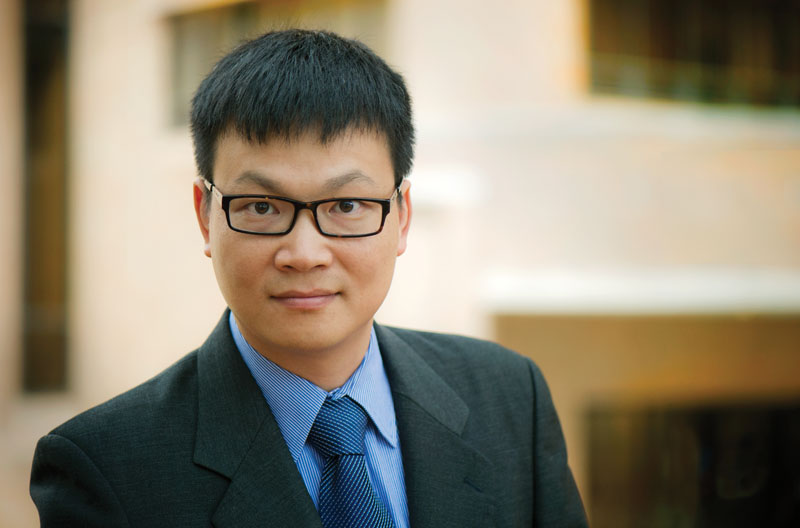inside job
Banking on Protection
NSF grant helps researcher assess employee risk at financial institutions

Jingguo Wang
Insider fraud within financial institutions poses a serious threat to the worldwide fiscal community. And with the advent of accessible, user-friendly data systems and the increase in employee access to financial information, the dangers keep growing.
Jingguo Wang, an associate professor in the Information Systems and Operations Management Department, has received a three-year National Science Foundation grant to combat this problem. The funding is part of a larger grant with the University of Buffalo worth nearly $500,000.
The goal is to reduce the security risks associated with privileged users. To do so, Dr. Wang is identifying insider risk and developing protection strategies for information systems within financial entities.
“Insiders pose great threats to information security in financial institutions,” he says. “We use criminology theories and extend those to the domain of insider threats. The behavior they display on information systems can give us insight for designing better protections for data security within that financial institution.”
Wang will use large-scale field data from two regional financial companies to provide a comparison. Part of the research will examine intervention programs to alter insiders’ behavior regarding information systems and their organizational information security policies.
College of Business Dean Rachel Croson says the study will provide a deeper knowledge of how to protect these financial entities: “This research will enable banks, credit unions, credit card companies, and other financial institutions to better understand and manage their cybersecurity risks.”

















